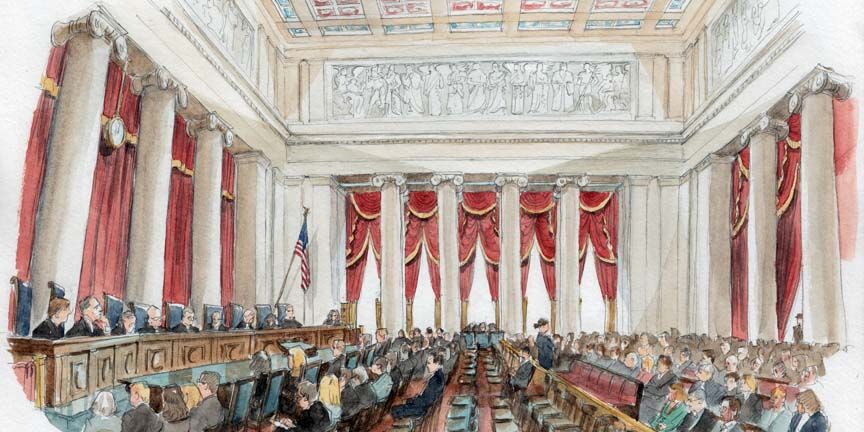Petitions of the week

on Jun 25, 2019 at 4:38 pm

This week we highlight petitions pending before the Supreme Court that address, among other things, what a court can consider when finding “circumstantial guarantees of [the] trustworthiness” of a hearsay statement, the proof a parent claiming substantive due process violations must submit to demonstrate that a county’s conduct “shocks the conscience,” and whether federal courts have the inherent authority to make coercive appointments of counsel in civil cases
The petitions of the week are:
Issues: (1) Whether a parent claiming substantive due process violations needs to demonstrate that the county’s conduct “shocks the conscience,” as five circuits have held, or whether omissions by the county—i.e., the lack of obtaining parental notice and consent—alone result in municipal liability, as the U.S. Court of Appeals for the 9th Circuit held below; (2) whether parental notice and consent (or a court order) are prerequisites to a child’s medical examination, even if (i) the exams are diagnostic and do not involve treatment decisions; and (ii) any investigatory purpose of the examinations is incidental to the primary purposes of protecting the child’s health and preventing the spread of contagious disease; and (3) whether, in conducting its “special needs” balancing test under the Fourth Amendment, the U.S. Court of Appeals for the 9th Circuit erred by disregarding the government’s interest in protecting the health of other children and center staff.
Issue: Whether a finding of “circumstantial guarantees of trustworthiness” may be premised on a district court’s belief in the truth of the hearsay statement, and its assessment of the credibility of the hearsay witnesses, rather than the circumstances surrounding the making of the statement.
Issue: Whether Washington’s compelling nonmember providers to accept a private organization as their exclusive representative for dealing with the state over public policy is one of the “other contexts” in which the “significant impingement on associational freedoms” is not tolerated by the First Amendment.
Issues: (1) Whether the U.S. Court of Appeals for the 8th Circuit erred in holding—consistent with decisions of the U.S. Court of Appeals for the 1st Circuit but in conflict with those of the U.S. Courts of Appeals for the 3rd, 5th and 7th Circuits—that under Firestone Tire & Rubber Co. v. Bruch, which imposes a highly deferential standard of judicial review to interpretations of Employee Retirement Income Security Act plans by administrators to whom the plans delegate interpretive discretion, an administrator’s determination that an ERISA plan authorizes certain remedial actions or measures is necessarily unreasonable merely because the plan is silent on the matter; and (2) whether the Firestone deference standard allows courts to reject an otherwise reasonable plan construction that is lawful under ERISA but, in the court’s view, pushes ERISA’s boundaries.
Issue: Whether federal courts have the inherent authority to make coercive appointments of counsel in civil cases.


